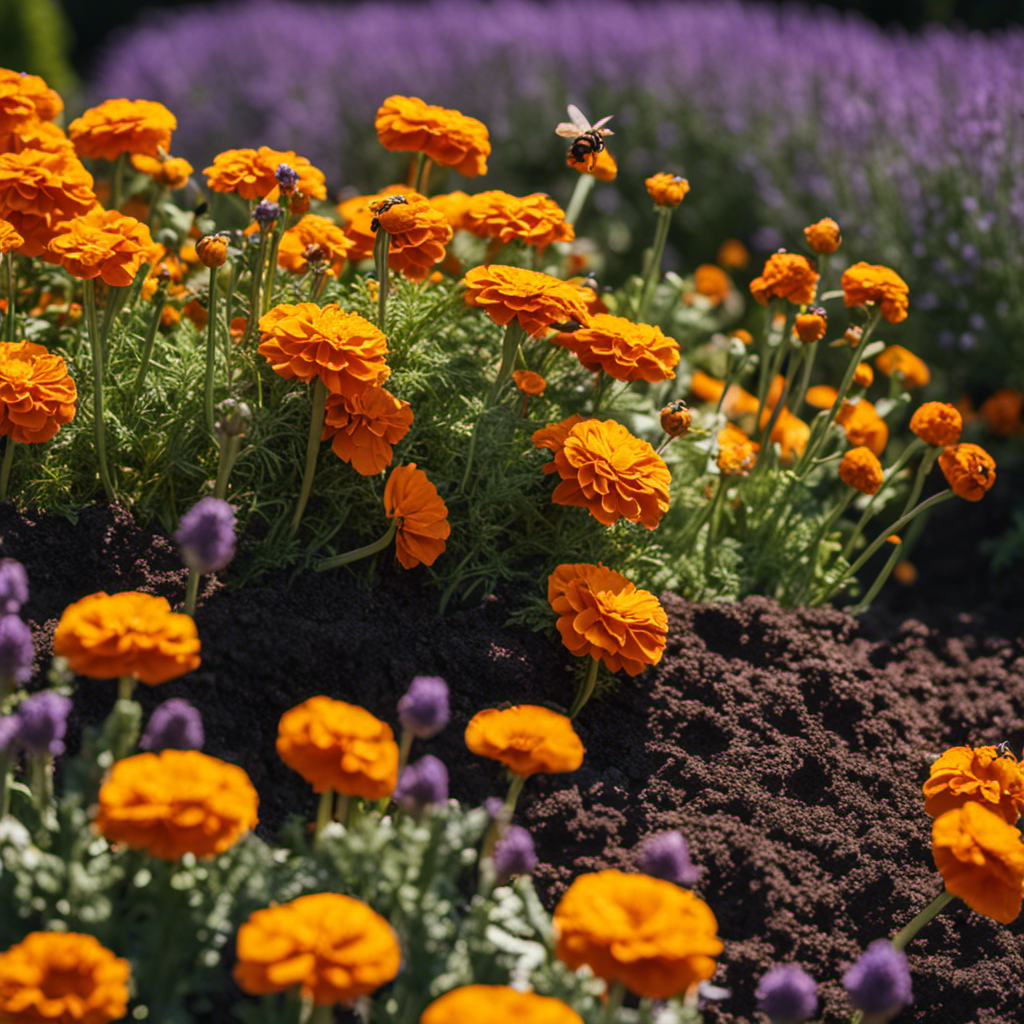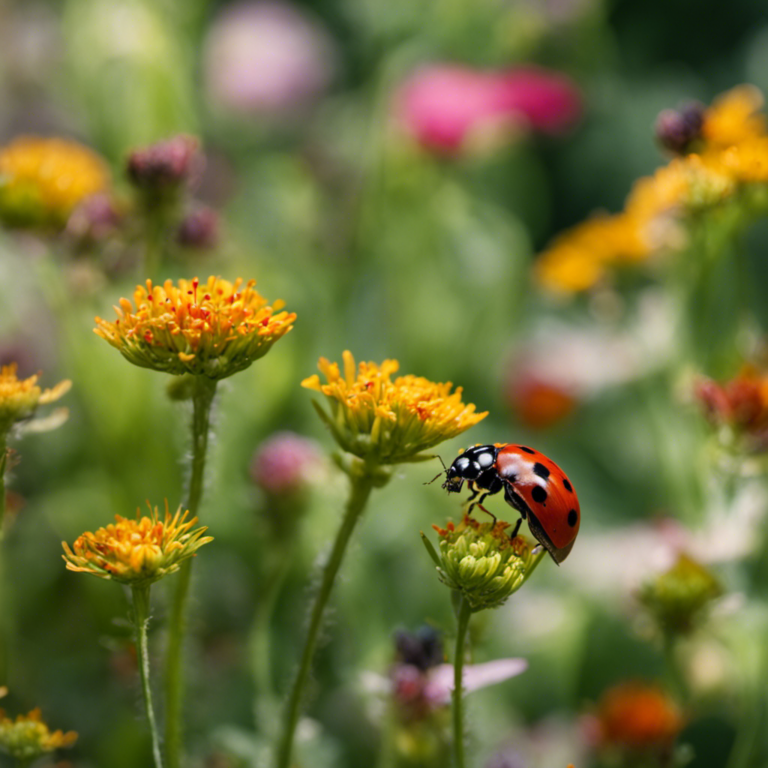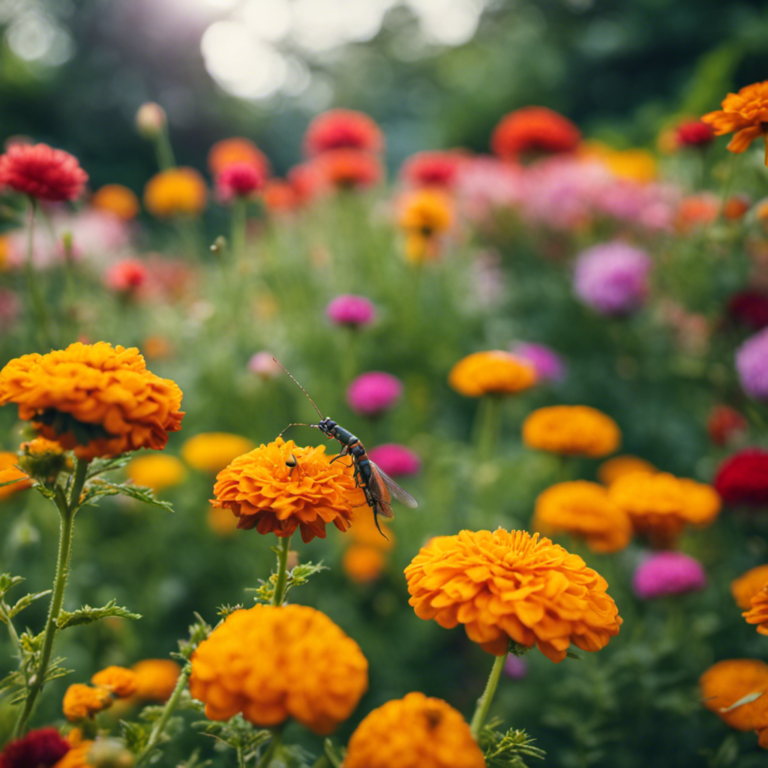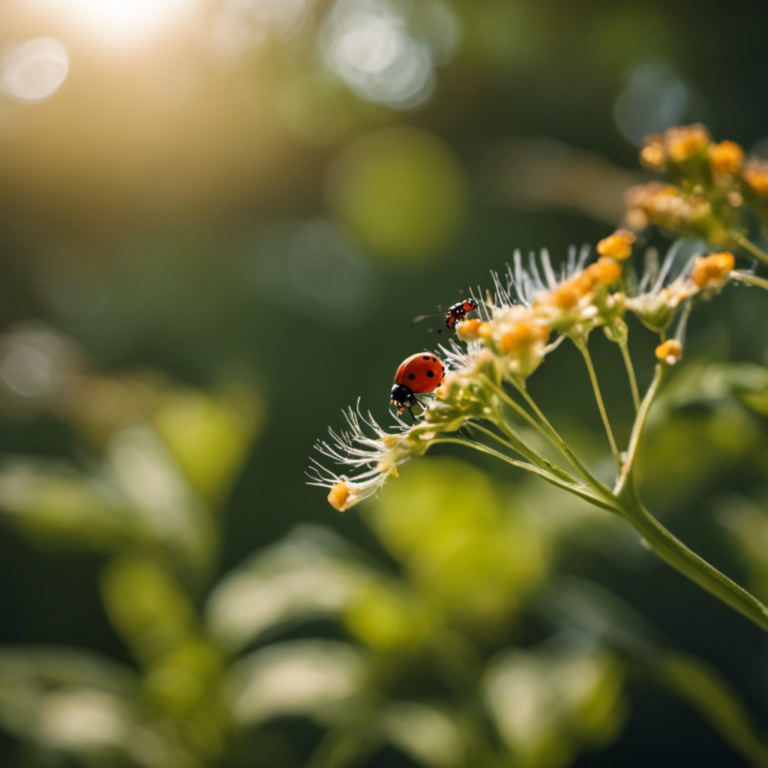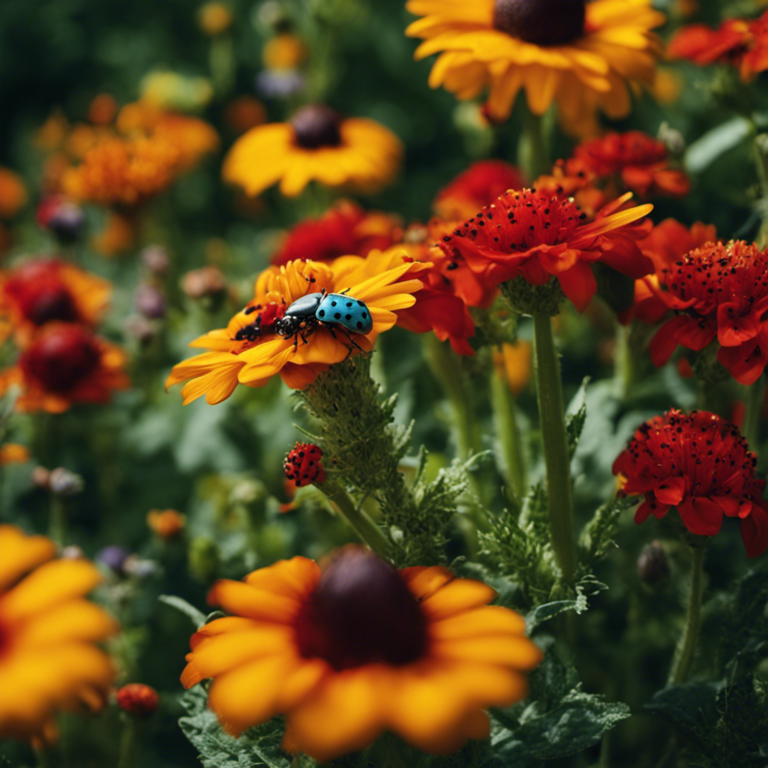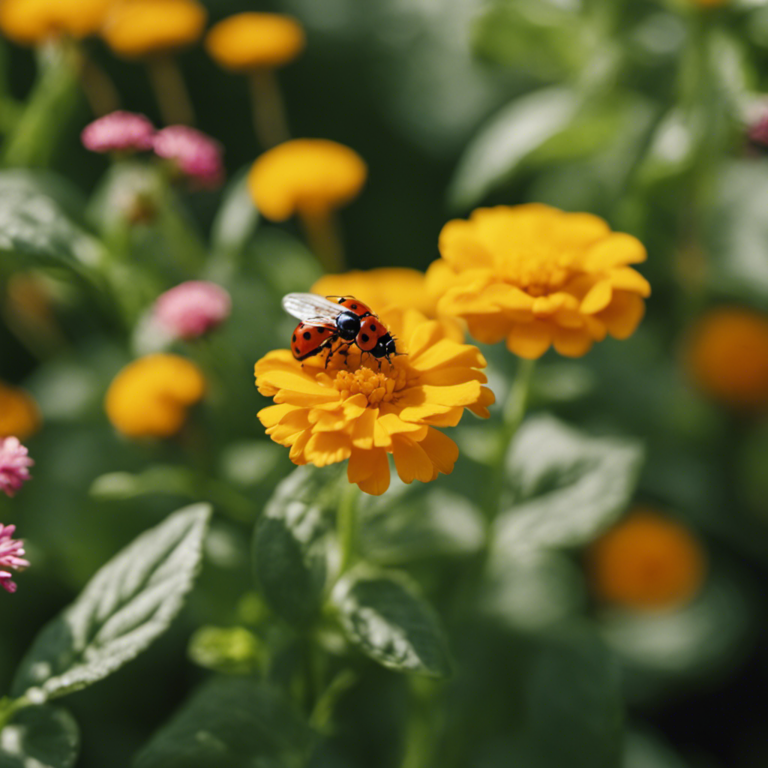Got a green thumb but struggling with pests in your vegetable beds? Don’t worry! This article will reveal natural solutions for victorious gardening.
Bid farewell to harmful chemicals and embrace sustainable methods. From companion planting to homemade repellents, beneficial insects to organic sprays, you’ll have all the tools necessary to protect your precious veggies and enjoy a bountiful harvest.
Let’s dive in and get started!
Key Takeaways
Banishing Pests Naturally in Vegetable Beds: Effective Methods for a Pest-Free Garden
By using companion planting, homemade repellents, beneficial insects, physical barriers, and organic sprays, you can naturally eliminate pests from your vegetable beds. Say goodbye to unwanted visitors and enjoy a thriving garden with these sustainable and practical techniques.
When it comes to gardening, prevention is key. By taking proactive measures to protect your plants, you can ensure their health and productivity. By employing these natural pest control methods, you’ll be able to maintain a successful and pest-free garden.
Remember, it’s important to understand your audience’s familiarity with gardening. Simplify your language and provide context to explain the importance of these methods. Avoid clichés and overused phrases to keep your writing fresh and engaging.
To create a natural flow, use transitions thoughtfully and prefer active voice over passive. Minimize hyperbole and support your claims with evidence. Include specific examples and product recommendations as needed to provide practical guidance.
In addition to rewriting in your own words, correct any spelling and grammar errors and ensure the content is unique by checking for plagiarism. Use a conversational style that mimics human writing, and bold necessary words for emphasis.
Employ a persuasive and relaxed writing style, avoiding words disliked by Google for better indexing. Write comprehensive paragraphs with rich details, and utilize keyword-rich subheadings for clarity. Finally, include a custom quote to add a personal touch to the article.
Happy gardening, and may your green thumb continue to flourish!
Companion Planting for Pest Control
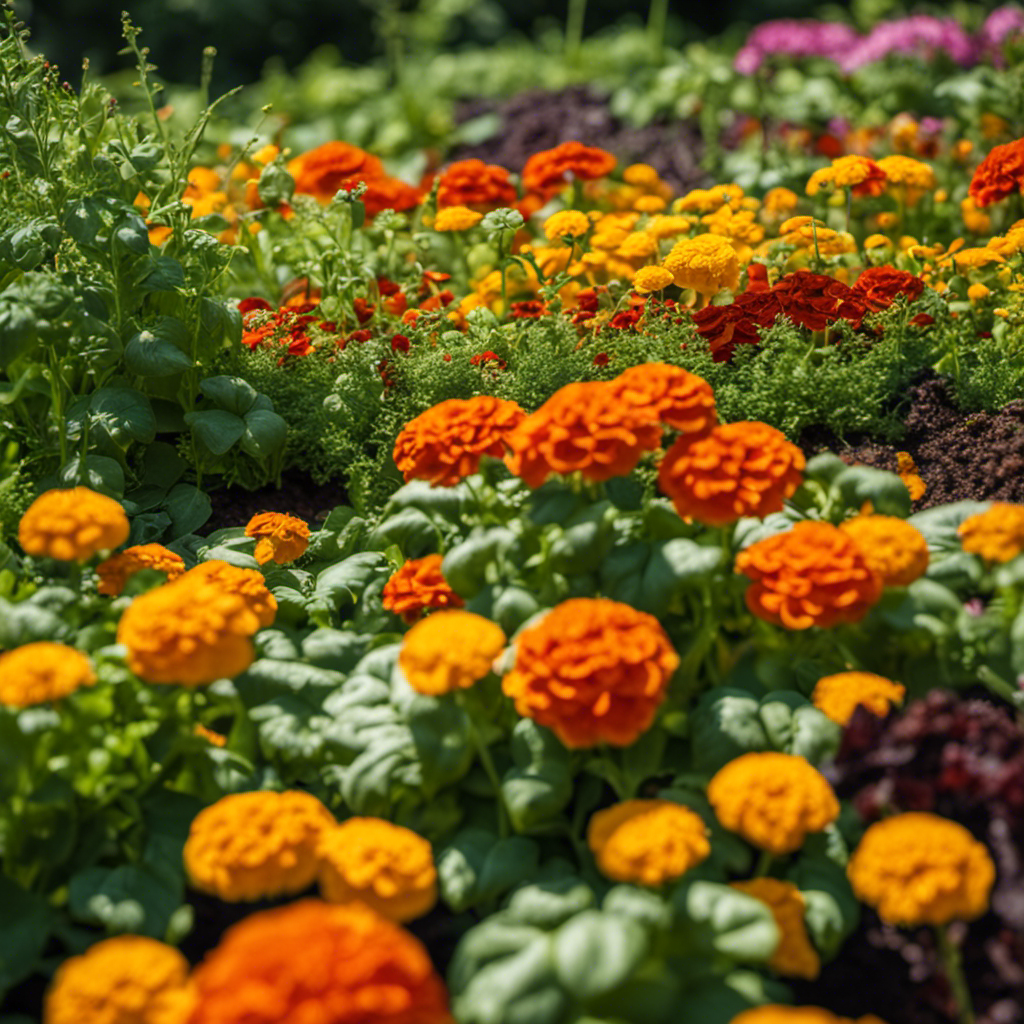
Companion Planting for Natural Pest Control
To effectively control pests in your vegetable beds, companion planting is a proven method that harnesses the power of natural partnerships. By strategically planting certain crops together, you can create an environment that naturally deters pests and promotes healthy growth.
One important technique is crop rotation, where you alternate the types of crops planted in a specific area each year. This disrupts the life cycle of pests that target specific crops, gradually reducing their population over time.
Another effective strategy is trap cropping, which involves planting a sacrificial crop that attracts pests away from your main vegetables. For example, planting marigolds around your tomatoes can help divert pests like aphids and nematodes.
By incorporating these crop rotation techniques and trap cropping strategies into your gardening routine, you can achieve natural and sustainable pest control without relying on harmful chemicals.
Companion planting is a simple and environmentally friendly approach that has been used for centuries to combat pests in the garden. By understanding the natural partnerships between plants, you can create a balanced ecosystem that minimizes pest damage and promotes overall plant health.
So why resort to chemical pesticides when you can harness the power of nature? Give companion planting a try and see the difference it can make in your vegetable garden.
Homemade Pest Repellents
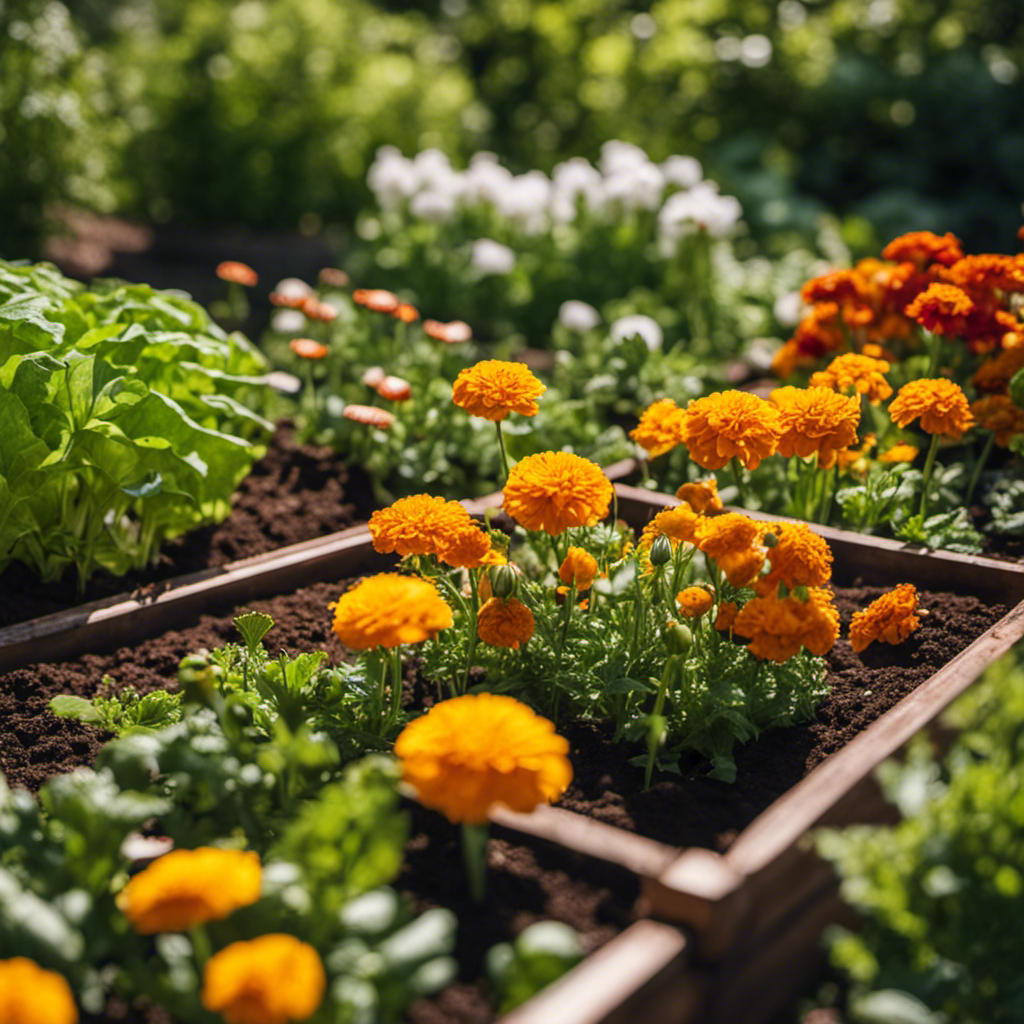
Protect your vegetable beds from pests naturally by making your own pest repellents. These DIY solutions are effective and safe for your plants and the environment. By using natural ingredients, you can create pest control remedies that will keep unwanted visitors away from your vegetables.
Here are some easy-to-make homemade pest repellents:
Garlic Spray: Make a garlic spray by blending garlic cloves with water and a few drops of dish soap. Strain the mixture and spray it onto your plants. The strong odor will repel pests.
Chili Pepper Spray: Blend chili peppers with water and dish soap to make a chili pepper spray. Strain the mixture and spray it on your plants to deter pests.
Neem Oil Spray: Mix neem oil, water, and dish soap to create a neem oil spray. This spray acts as a natural pesticide and keeps pests at bay.
Remember to regularly apply these homemade solutions for effective natural pest control.
In addition to homemade pest repellents, consider planting pest-resistant plants in your vegetable beds. These plants have natural defenses that repel pests and reduce the need for chemical interventions. Some common pest-resistant plants include marigolds, basil, and mint. Planting them alongside your vegetables can create a natural barrier against pests. Marigolds, in particular, emit a scent that repels many pests, including nematodes. Basil and mint also have strong aromas that deter pests.
By incorporating these pest-resistant plants, you can further enhance your vegetable bed’s natural defense system.
Protecting your vegetable beds from pests naturally isn’t only practical but also sustainable. By utilizing homemade pest repellents and incorporating pest-resistant plants, you can maintain a healthy and thriving garden without relying on harmful chemicals. Embrace these natural methods and enjoy the bountiful harvest while serving the environment and your community.
Beneficial Insects for Natural Pest Management
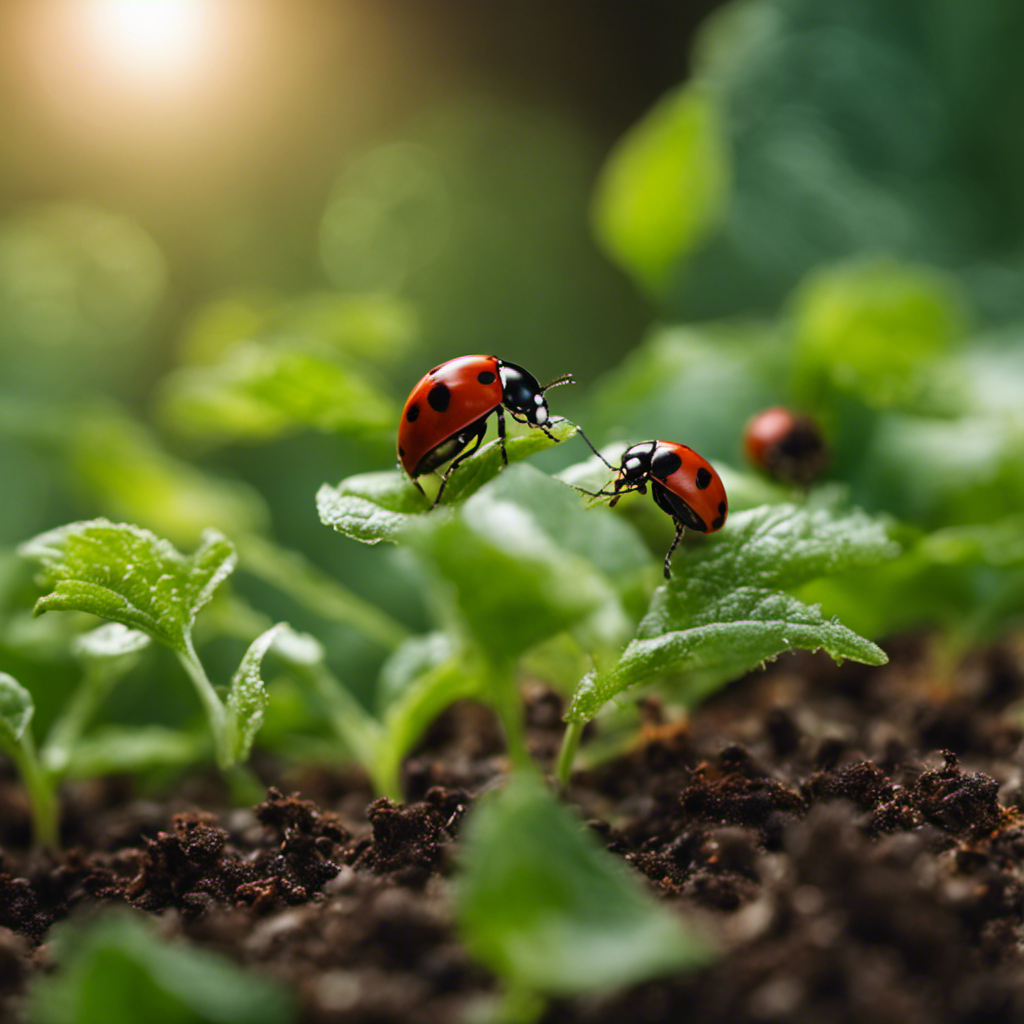
Incorporating beneficial insects can improve the natural pest management system in your vegetable beds. These insects not only prey on pests but also offer other valuable advantages.
For example, attracting pollinators like bees and butterflies to your garden ensures proper pollination, leading to increased crop yield.
Using beneficial insects for pest control promotes sustainable practices in your garden, as it avoids the use of harmful pesticides that can harm the environment and beneficial insects.
Physical Barriers to Keep Pests at Bay
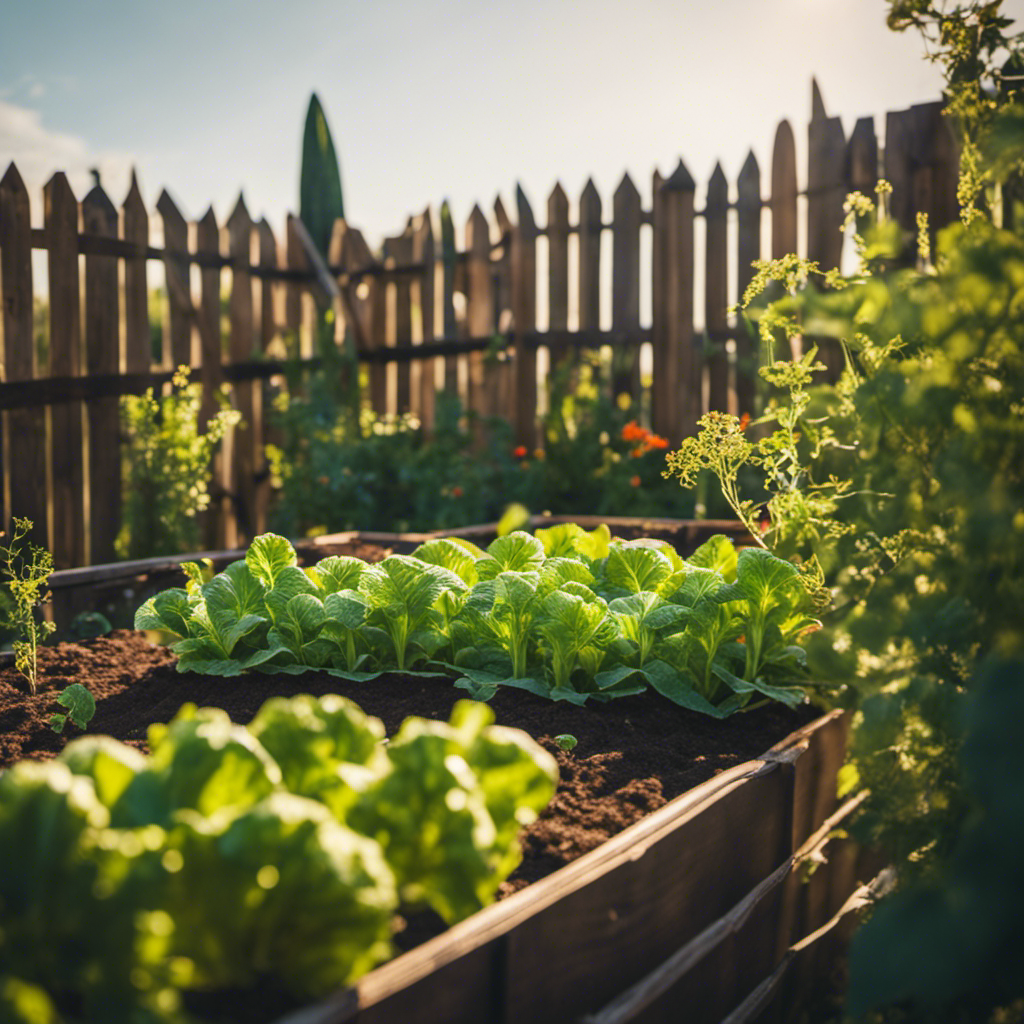
Using beneficial insects can enhance the natural pest management system in your vegetable beds.
To further protect your plants, you can employ physical barriers that effectively and sustainably keep pests away. One method is vertical gardening, where you grow your plants upwards using trellises or cages. This not only saves space but also makes it more challenging for pests to access your plants.
Another approach is crop rotation, which involves changing the location of your vegetables each year. This disrupts the life cycle of pests, making it difficult for them to establish themselves.
Additionally, installing fences or nets around your vegetable beds can provide a physical barrier that keeps pests out.
Organic Sprays and Solutions for Pest Control
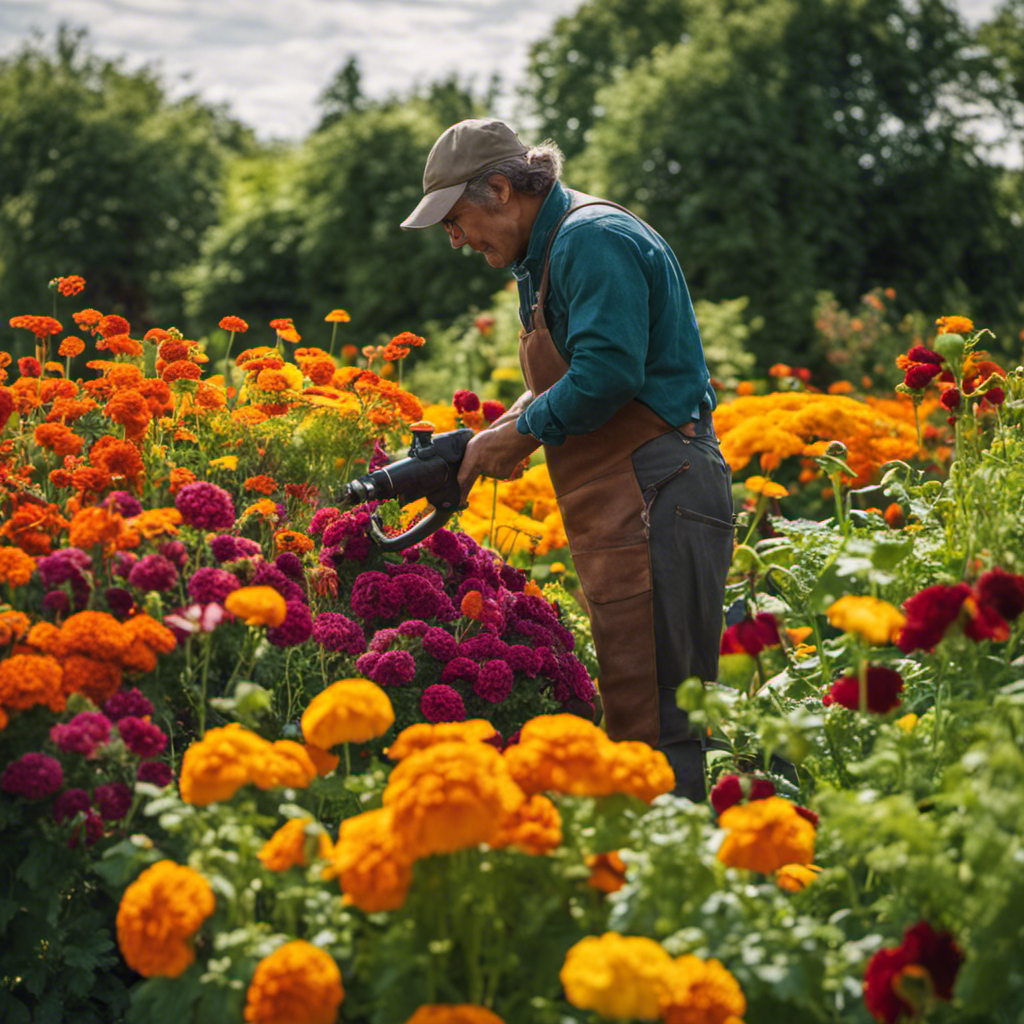
For effective pest control in your vegetable beds, consider using natural organic sprays and solutions. These methods aren’t only highly effective but also safe for your plants, the environment, and your health.
Here are three natural pest control methods that utilize essential oils:
-
Neem oil spray: Neem oil is derived from the neem tree and has insecticidal properties. It disrupts the hormonal balance of insects, making it a powerful solution for aphids, whiteflies, and spider mites.
-
Garlic and chili spray: You can create a homemade spray by blending garlic and chili peppers with water. This mixture acts as a natural repellent for pests like slugs, snails, and caterpillars.
-
Peppermint oil spray: Peppermint oil is known for its strong scent, which repels insects such as ants, aphids, and beetles. Dilute a few drops of peppermint oil in water and spray it around your vegetable beds to discourage pests.
Conclusion
By utilizing companion planting, homemade repellents, beneficial insects, physical barriers, and organic sprays, you can effectively get rid of pests from your vegetable beds in a natural way.
Don’t let pests ruin your gardening experience! With these sustainable and practical methods, you’ll be able to maintain thriving plants that are free from unwanted visitors.
It’s important to remember that prevention is key when it comes to gardening. So, take proactive measures to protect your plants and enjoy the rewards of a successful and pest-free garden.
Happy gardening and may your green thumb continue to flourish!
